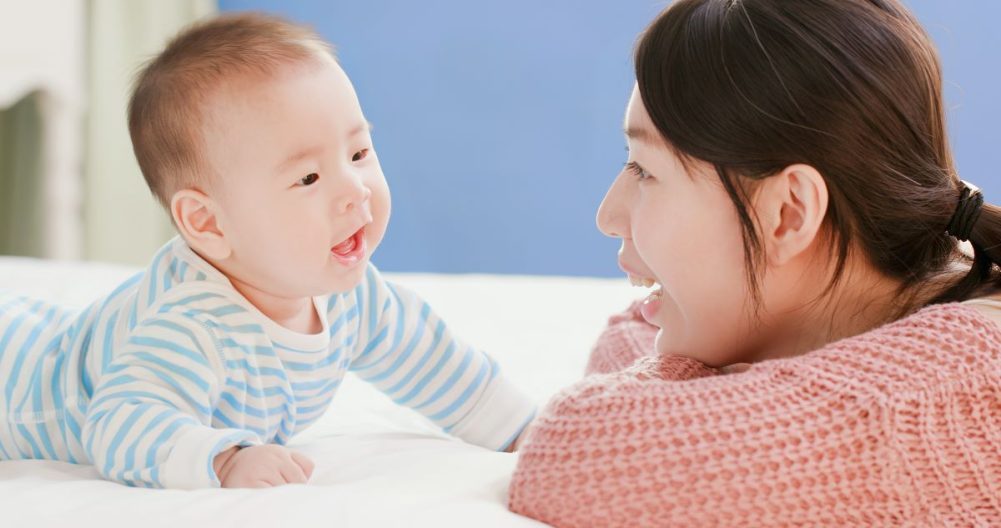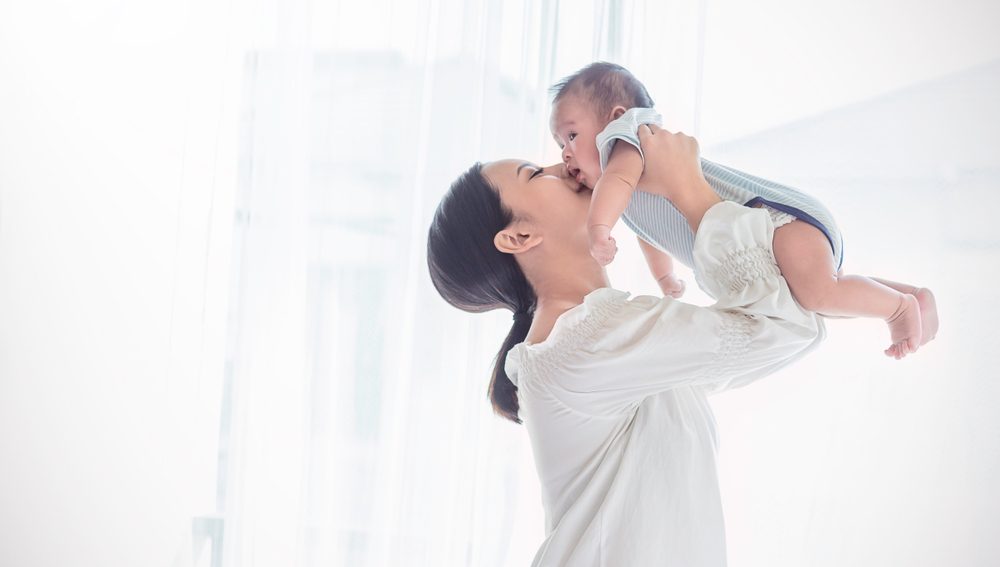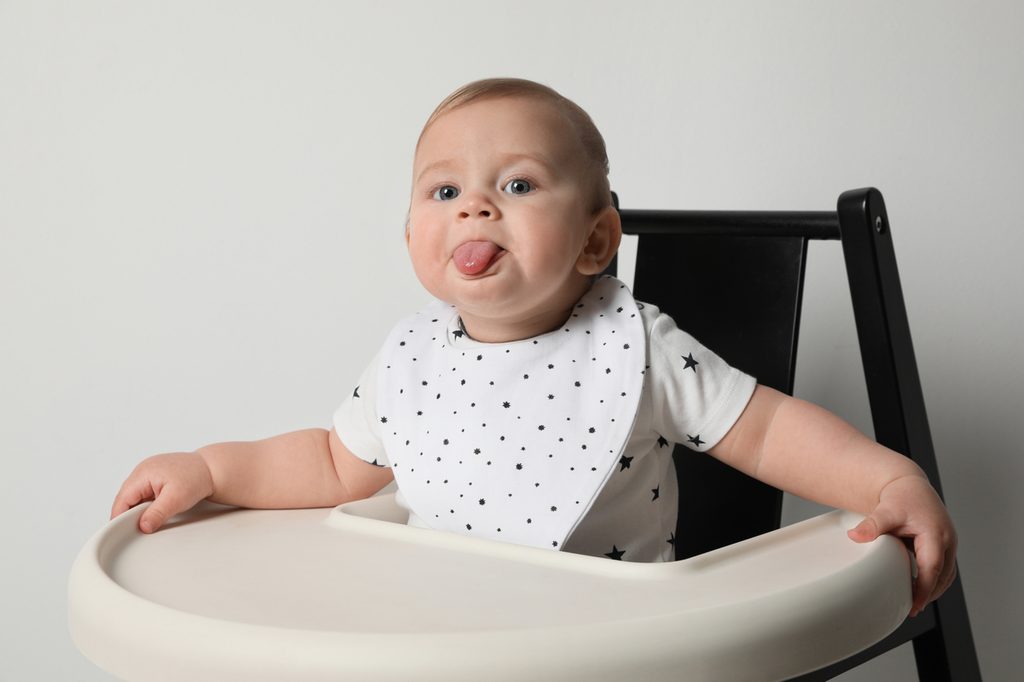
There is no sweeter sound to a new parent than listening to their baby cooing and babbling. While you’re waiting for those first words, those early squeals and giggles are simply delightful. With each sound, your little one is communicating with you even without saying their first official word. But have you ever sworn you’ve heard your baby sound more like an animal than a human? There are reasons why babies growl sometimes, and parents need the heads up.
If your baby has added growling to their language skills, you may be wondering why they chose to sound more feral than human. Turns out, it all depends on when and how they growl. Even though it might be unusual, it is pretty adorable to witness. Here’s how to decode why babies growl and what those noises mean.
Deciphering your baby’s new sounds

Your baby will make the weirdest, most adorable noises.
During those early newborn days, you quickly realize each type of cry means something different, but specific. One cry means baby is hungry, another cry for a diaper change, and yet another type of cry when your bundle needs a cuddle. Just when you’ve finally figured out what each cry means, all the other babbling, squeals, grunts, and growls start. You’ll have a slew of new sounds to decipher.
“I often reassure new parents about the noises newborns can make,” wrote Dr. Samira Armin, a pediatrician at Texas Children’s Pediatrics Humble Fall Creek on the Texas Children’s Hospital website. “These noises are rarely explained in baby books and most people don’t warn us about them. These noises are also normal.”
The different types of growls

Even if your baby skips right over the sighs and squeals and gets right to the growling, the reason behind their new tiger sounds is adorable. Speech-language pathologist Diane Paul told Parents Magazine your baby’s growling may start out as a reflex, like crying and the other sounds they are learning to make.
Your baby likes the way the noise feels
However, once your little one starts to growl, they may just like the way it feels and will continue making the growls. So, if you hear a few guttural noises during tummy time or echoing from their crib, it’s because the tickling in their throat is fun.
Your baby is a sponge
Between 6 and 11 months old, babies will begin mimicking sounds they hear. Your tiny parrot may start growling if they hear the dog make that noise, so growling will be part of their new copycat skill set.
Your baby realizes you like it
Around the same time, your mini-comedian will learn they love to make you laugh. If the baby lets out a growl and gets a smile and giggle from you, there’s a good chance they will do the growling over and over to keep you as a captive audience.
Your baby isn’t happy
Finally, you’ll hear growls as your baby’s way of showing anger or frustration. After all, your baby doesn’t have the words to communicate their feelings yet, and a growl does the trick. If you aren’t spooning up applesauce fast enough or your baby is frustrated because they can’t reach their favorite toy, you might hear a few ferocious growls.
Your baby might have tummy trouble
Sometimes you’ll hear growls and grunts as your baby works on digesting their food. Your babe feels gas pressure building up and as they squirm to try to relieve the pressure, they will let out sounds like growling. If you hear your baby making these sounds, pick them up and try patting them on the back or rubbing their belly. These grunts and growls will stop when your baby lets out a burp or fart.
How to help your baby stop growling

If you want to help your little munchkin keep the growls to a minimum, there are a few tricks to try.
Adjust their meals
Try giving your child smaller meals throughout the day to help with indigestion. You should also keep that tiny body sitting up for a bit after they eat, shooting for 30 minutes before they get tummy time or before you put them down for a nap.
Check the way they sleep
Babies sleep better when at a slight angle. If your tot growls in their sleep. elevate the side their head is on and see if that soothes the animal sounds.
Baby massages
If your baby is uncomfortable, has gas, or is grunting or growling for any other reason, a massage is the answer. A belly rub, back massage, or head massage will ease your babe into settling down with the noises. Making your child do the bicycle with their legs after meals helps with most of those issues as well.
When do babies stop growling?

However you feel about your baby growling, they won’t be doing it for too long. Grunting is very common for babies as well, but that doesn’t last very long. “Most babies stop grunting when they are about three to four months old, or when their tummy muscles are strong enough to help with bowel movements,” midwife Lesley Gilchrist explained to Mother & Baby. “Until then, they tend to engage their diaphragm when they strain, an action which puts pressure on their glottis (voicebox).”
Babies also tend to stop growling as they learn to talk and communicate with you. This is another phase of their development and can be fascinating to watch as they learn and grow and their communication skills change.
Rest assured, there’s no need to worry about your baby growling unless they seem to be in distress, have a fever, or are struggling to breathe. If you’re unsure, reach out to your pediatrician with any concerns. Most times, those little growls, grunts, and guttural noises are just your baby’s way of talking to you. Whether your baby growls because they like the way it sounds or they are feeling frustrated and trying to communicate those feelings, growling is quite normal and the beginning of language development. Be sure to get a few of the animal noises on video because once your baby starts chatting, you’ll miss hearing the sweet sounds of those tiny growls.


